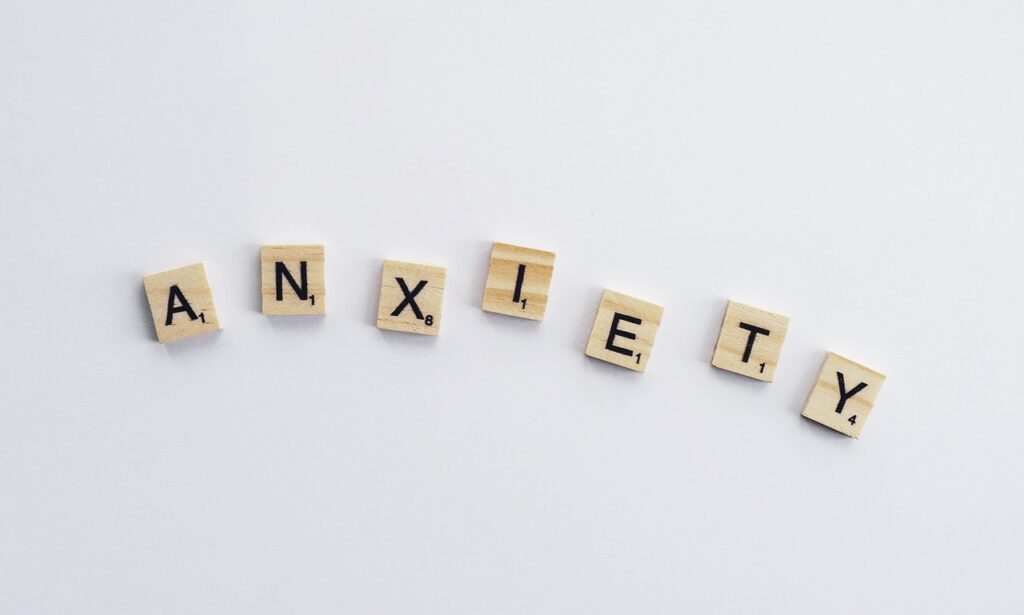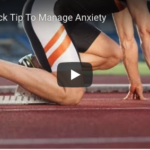A Dose of Science
Quick science-based tips to improve your daily lifeQuick Science-Based Tips to Improve Your Daily Life
What To Eat For Your Brain Health
What Type of Exercise is Best for Brain Health?

It’s no big surprise that exercise is great for your physical health, but there is new research on some unexpected brain benefits as well.
Even if we know exercise is good for us, it can be understandably challenging to find time to fit in that workout.
If you are looking for the most “bang for your buck” when it comes to a brain-boosting workout, let’s break down what you need to know regarding when and which types of exercise give you the most brain benefits.
Exercise for Brain Health: What the Research Says
Here’s the good news. Even small amounts of light aerobic exercise improve blood flow to the brain. This blood flow is not only nourishing but protective as well.
Here are other crucial ways exercise is like medicine to your brain:
- Reduces inflammation
- Reduces overall stress
- Balances stress hormones
- Increases thickness of the cerebral cortex
- Stimulates hormones like dopamine, norepinephrine, and serotonin
- Increases brain-derived neurotrophic factor (BDNF), which protects and repairs cells and helps with neuroplasticity
What About Memory?
It turns out that 30 minutes a day of walking can work wonders for our memory. Why is walking such a memory booster? Think about your ancestors. They were often walking and looking for food. This walking activated their memory, to help them remember the best hunting and fishing spots.
A study in the journal Nature uncovered that Brain-Derived Neurotropic Factor (BDHF) was increased in older adults after physical exercise. What’s BDNF? BDNF is a powerful protein that is associated with improved learning and memory. You want this stuff flowing in your brain.
But wait, there’s more! Another study found that even light activity and a moderate amount of walking (7,500 steps a day) were positively associated with a higher brain volume and less brain aging.
Could Exercise Reduce Loneliness?
Here’s a bit of an unexpected relationship. A recent study out of Cedars-Sinai Medical center suggests that exercising reduces social isolation. Studies have uncovered that loneliness can harm the brain and immune health. But the data suggests those who took part in online exercise courses experienced decreased loneliness and social isolation. Those enrolled in the study ranged in age from 52 to 104. Very inspiring!
Does It Matter When You Exercise?
A review of 10 years of studies published in Translational Sports Medicine found exercise timing can be an important factor in memory and attention.
A quick workout before a memory task improved learning more than if the workout took place afterward.
A short workout was also shown to improve focus and short-term memory. Studies suggest exercise can increase activity in the brain’s prefrontal cortex, which helps with focus, attention, and memory.
This insight is something to consider as many of us (kids and adults) are spending more time on screens.
Your brain can benefit from simple exercises to improve your focus.
Next time you want to master that Sudoku or crossword puzzle, get some deep focus at work, or ace that quiz, consider a brisk walk right before.
Get More Brain Health Tips
There are simple steps we can take to change our lifestyle and improve brain health..
Follow my Dose of Science blog and YouTube channel for more science-based tips to help you stay healthier and happier.
Enjoyed this article? Here are three more to help you:
Brain Health Tips: Your Gut and Alzheimer’s Disease
Have You Ever Wondered How to Get Better Grades? Here’s One Simple Trick
How To Power Nap Based On Brain Science
What Is Change Fatigue And How To Train Your Brain To Better Adapt To Change
Written by Dr. Marc Milstein and Ben Moorsom of Debut Group
Change: Do you love it or hate it?
Many of us don’t care much for it. We want routine! We want structure! We want predictability!
While change is often seen as a positive, it can also be associated with negative emotions.
When we are constantly expected to adjust to the changes going on around us, this can cause some of us to feel stress, anxiety, and fear. We call this “change fatigue,” and this feeling can be exhausting.
The pandemic has led to constant changes in many aspects of our lives. It is understandable if you feel change fatigue.
If you’re feeling high levels of chronic stress from all the constant changes, rest assured that you can train your brain to adapt.
The Brain on Change
Before we get to the take-home tips on how to better adapt, let’s discuss some quick insights into how your brain works in regard to change.
Change often induces a spike in your heart rate and blood pressure.
Why? We perceive change as a threat, even if it is minor. We can also perceive change as a loss and if there is one thing our brain hates, it’s the pain associated with loss.
Why does the brain sometimes struggle to adapt to change?
You have about 80 billion brain cells, but only a small number of these cells are allocated to handle change or what is called cognitive flexibility. But it’s not just the number of brain cells that matter.
Research published in the journal Proceedings of the National Academy of Science (PNAS) suggests that while some people adjust quickly to change, others have weakened connections between these small numbers of brain cells. Weakened connections make it very difficult for some people to adapt to change. This means that they will be more susceptible to change fatigue. The good news is there are ways to strengthen these brain cell connections that help us adapt to change.
Perception and Rewards
Let’s break down what is happening in your brain when you experience change. Your brain weighs the cost-benefit ratio. Basically, your brain asks, is the change more rewarding than something I am currently doing?
If the change is perceived to be less rewarding, it upsets the brain’s stability. This disrupts the ‘happy’ medium of the brain and leaves us struggling to adjust to the change.
What can we do? A simple perspective shift can do the trick. Research has uncovered that improving our perception of change is critical. Viewing change in our lives with a positive outlook can help us adapt over time.
For instance, the next time you think about your home office, remember that you get to skip that long commute! On the other hand, if you are heading back into the office remind yourself how beneficial social interaction is for the brain.
Remember how the brain can perceive change as a loss? A simple trick to rebalance the brain is to focus on the gains from the change. It sounds simple but actively reminding ourselves of the positive is critical as our brain naturally tends to focus more on negative than positive.
Here’s the brain science. Our thoughts are connections between our brain cells. If we spend time focusing on negative thoughts we simply make those connections stronger and we are more likely to think more negative thoughts. On the other hand, if we make time to focus on the positive we strengthen those connections which also help us adapt to change.
Combating Change Fatigue in the Workplace
One of the key areas we see change fatigue is in the workplace. This feeling is understandable as the last thing we want is a new set of rules.
Studies suggest that leaders and managers who can communicate the rewards from any change can motivate and help employees adapt. Remember to focus on the positive and the gains.
Research published by the University of Illinois showed that there are two key factors involved in improved employee change adaptability:
- Work autonomy
- Trust in their leaders
What is work autonomy? In essence, work autonomy is when employees can make more of their own decisions about the structure of their workday. Research shows a little more freedom boosts motivation and productivity.
Trust is another essential factor in adaptability to change.
How do you build trust?
Here’s some good news. Giving some level of work autonomy builds trust. Second, trust grows when employees feel supported.
1. A Strong Support System

Humans thrive on social connection.
In fact, historical evidence shows a higher survival rate in those with a more robust social standing, both as individuals and in a community setting. Basically, one’s longevity can be linked to social connection.
We might think that support at work is superficial, but the need for strong social support in the work environment is often no different from that which we desire in our personal lives.
During times of change, getting reassurance from others in the same environment is critical to combat change fatigue. This reassurance strengthens the connections in the brain that help adapt to change.
2. Being Heard
Showing genuine empathy and compassion in personal and professional relationships leads to trust and can help those around us be more resilient to change fatigue.
At work, allowing employees to voice their concerns and worries and feel heard through listening sessions builds trust.
In our personal lives, setting aside time to have a partner or family member “vent” and communicate is a valuable component of a healthy relationship.
Anger is a complex emotion, but at its root, anger often stems from not being heard or understood. We don’t necessarily need to solve every problem, but it is critically important to feel heard.
3. Wellness

The energy required to make decisions in times of change can be exhausting and can have a devastating effect on our sense of wellbeing and drain our body.
Staying in touch with simple acts of wellbeing can help to maintain or restore resilience to change — here are some examples:
- Take part in wellness programs
- Incorporate movement into your day
- Go for a short walk
- Do some stretching, exercise, or yoga
- Get into nature
- Take a short rest and manage your sleep
- Follow a healthy eating plan
At work, organizations can create an environment where wellness is encouraged, rewarded, and prioritized.
How You Can Become More Resilient to Change
Hopeful brain science insights uncover that through the right practices, the brain can strengthen brain cell connections that help us adapt to change.
Life is about change and it is critical to teach the brain to be comfortable even during the uncomfortable transitions. Some quick tips to be more resilient are:
- Remind ourselves change brings gains and innovation
- Manage sleep, stress, and specific health conditions
- Eat foods and exercise for brain health
- Try to implement change in small doses
- Allow the ‘new normal’ to become a habit rather than a stress factor.
As we move forward we can try to hold on to aspects of the past that we enjoy and embrace new changes that will bring us benefits.
Change doesn’t always need to be stressful. The mind is a powerful tool and one that can change itself to become more resilient — we just need to give it that chance to do so and implement small changes that can help the brain adjust.
Sign up for my Dose of Science blog, and my follow YouTube channel for more science-based brain health tips!
Enjoyed this article? Here are three more to help you:
3 Surprising Ways To Hack Your Day-to-Day Mood
A 5 Minute Solution To Help You Sleep
A Quick Tip To Help You Focus
An Easy Tip To Help You Manage Your Anxiety

Anxiety is essentially a survival mechanism that alerts us to danger. The feelings of anxiety are common and it is important to note that individuals respond to anxiety differently.
Read on for some simple tips that you can incorporate into your routine.
Addressing Anxiety: How Bad Is it?
Feeling a little anxious from time to time is normal, even healthy. But when these feelings become overwhelming or chronic, professional help and/or medication are important tools to manage anxiety. If you believe your anxiety is disrupting your life, see a healthcare professional for a formal diagnosis.
Anxiety can be complicated to manage, and it can be severe.
The National Institute of Mental Health (NIH) classifies anxiety into three broad categories:
- Generalized Anxiety Disorder (GAD)
- Panic Disorder
- Phobia-related disorders
Check out the NIH website for more detailed information about anxiety disorders.
New brain research provides important and hopeful insights to help manage anxiety.
There are a variety of methods to manage anxiety, and everyone’s health plan can be individualized. But there are general principles that are helpful in managing anxiety and utilizing these tools has been helpful in studies.

An Easy Tip to Help You Manage Anxiety
Imagine two athletes, an amateur athlete versus a professional one. They’re both just about to start a race, and they are generally both at the same level of health.
Let’s imagine asking them how they feel.
- Pro athlete: I feel great, I feel pumped! If I win, great, but if not, I’ll still have fun and learn how to improve.
- Amateur athlete: I feel stressed out. I’m so nervous that I will lose.
Do you see how the two athletes interpret the same situation?
In the case of these athletes, the feelings of nervousness are just their bodies preparing them to take on a higher-stress situation, which is a good thing!
When people can look at their anxiety and interpret it as excitement or getting “pumped,” they perform better and get more energy from their bodies.
In this way, our perception can impact our performance.
So next time you feel anxious or nervous, stop and check-in with yourself — is your anxiety a bad thing, or is this just your body/brain preparing itself to perform?
Try taking that nervous energy and accomplish one task and then take a break. Where we run into trouble is we often try to tackle two or three tasks all at once with no breaks.
Watch my video for a review of a quick tip to manage anxiety.
Other Ways to Cope with Anxiety
To manage anxiety successfully, diet and exercise are also critical factors.
Here are some actionable tips to experiment with if you experience mild to moderate anxiety.
Deliberately Schedule Relaxation Breaks
Time-outs are necessary—scheduling time for activities that lower stress can be great for all health aspects.
Consider:
- Scheduling some “me time” to focus on a hobby you enjoy.
- Taking a weekly yoga class with a friend
- Take a power nap
Deep Breathing
Any time you feel anxious, take a few minutes to steady yourself and take some deep breaths. Simply slowing down and being mindful about your breath can help you send calming signals to the brain.
Consider the Brain-Gut Connection
More and more research is coming out about the connection between brain health and gut health. Diet has a significant effect on our day-to-day moods and long-term mental health.
Foods that are good for your brain and your gut include:
- Foods with omega-3 fatty acids
- High-fiber foods
- Foods containing probiotics and prebiotics
Sleep Well
Getting enough shuteye is important, but it’s the quality of sleep that counts too.
Try this 5-minute morning ritual to help you fine-tune your sleep/wake cycle.
Gentle Exercise
We all know that exercise can help almost every aspect of our physical health, but exercise is critical for mental health as well.
You don’t have to become a “gym rat” to enjoy the benefits — if you are sedentary, you should take it slow. A 20-minute walk every day is a great place to start and offers some excellent health benefits.
A great goal is at least 2.5 hours of moderate-intensity activity per week.
Get Useful Mental Health Tips In Your Inbox
Trying to manage anxiety is challenging, and if you are struggling, it is important to receive support. With lifestyle changes, stress reduction, and in some cases, medication, improvements can be made…
Everyone can become more empowered with their mental health by taking small steps each day. Sign up for my Dose of Science blog, and my follow YouTube channel for more science-based health tips!
Enjoyed this article? Here are three more to help you:
3 Foods That Sound Healthy But Have Too Much Hidden Added Sugar
3 Surprising Ways To Hack Your Day-to-Day Mood
A 5 Minute Solution To Help You Sleep
Are You Forgetting Something? Here’s How to Improve Your Memory
Have you ever wondered how to improve your memory?
We’ve all had those moments where we’re standing by the refrigerator with the door open, gazing at it blankly as we forget exactly what we were hoping to find…
We all forget from time-to-time; it’s perfectly normal. Our memories naturally decline a little as we age. But it’s also possible to improve your memory at any age.
Here are my thoughts on what might just be the biggest memory booster, plus some other tips to help you remember.
How do our brains form memories?
All thoughts, including memories, are electrical and chemical signals between neurons. Making a new memory requires forming a new connection.
Memory creation and recall involves three phases:
- Encoding (learning new information)
- Storing (keeping the information)
- Retrieving (recalling the information correctly)
Various factors can affect any of these steps, which results in misremembering or forgetting.
Scientists believe that sensory input is essential in the encoding phase. If you think about how a smell or taste might evoke a strong memory, you probably will understand how vital sensory input is to this process.
One Surprisingly Simple Activity to Combat Memory Loss
In recent years, various studies point to the effectiveness of aerobic exercise for brain health, specifically memory.
But this doesn’t mean you need to go on a long run or hit the gym; just walking for 30 minutes a day can have a significant impact on memory formation and recall.
This makes sense. After all, if you think about our ancestors foraging for food, the ones who were able to pick up visual cues and remember them so that they could find their way home would have been more likely to survive.
So you don’t need to look too far if you’re wondering how to improve your memory — a simple stroll is a great start. But this is just one of many things you might want to try.
More Tips to Help Memory
Here are a few other things you can do to keep your brain healthy to retain necessary information.
Sleep
Scientists have conducted multiple studies that support the theory that sleep is essential to cognition, concentration, and memory.
So most adults will benefit from about 7-8 hours of sleep a night.
But it’s also about the way we sleep. Getting a night of restful sleep is important, and napping — when done right — can help with cognition.
This short video explains how to make the most out of your next nap.
Repetition
You may have had experience studying for a test and reading the same set of notes over and over again, trying to memorize. Repetition works, but for some, it works better if they’re addressing the same topic in a different way.
For example, if you read about an interesting movie online, see it with a friend and then have a discussion about it, you might be more likely to remember it than if you just read a single article.
The more often you repeat something, the more likely it will be to “stick” in your brain. So if you want to discover how to improve your memory, you might want to try repeating the same information through a variety of formats.
Writing
Writing with a pen stimulates the brain in a way that typing doesn’t, potentially leading to a better chance of memorization. This might be a good motivation for students who routinely use laptops to take notes in class.
Build a Memory Palace
A “memory palace” or “mind palace” is a way of visualizing a set of details. You tie those details to a place such as a house, where each item is placed in a different room. Then you will tie other concepts and ideas together in a quirky way that makes the visualizations memorable. Then you “walk” through the house and see each visual when you need to remember.
(This Smithsonian article explains the “mind palace” concept in more detail.)
Pay More Attention to Relevant Details
We are capable of retaining important information, but we need to essentially cue our brains to understand which information is most important.
If there is too much going on at once — for instance, if we’re constantly distracted by phone, or social media notifications — our brains can get overloaded.
Be aware if you’re feeling stressed or overloaded, and give your brain regular breaks throughout the day.
Even a 5-minute meditation may help clear clutter from your brain, help you concentrate better, and improve memory.
Connect with Me for More Brain Health Tips
There are so many things that we can do every day to improve our memory, concentration, mood, and overall health.
Sign up for my Dose of Science blog, and my follow YouTube channel for more science-based health tips!
More Dose of Science Articles that might be of interest:
3 Foods That Sound Healthy But Have Too Much Hidden Added Sugar
A 5 Minute Solution To Help You Sleep
A Quick Tip To Manage Anxiety
Have You Ever Wondered How to Get Better Grades? Here’s One Simple Trick

Almost every student wants to know how to get better grades.
Today I’m going to share a simple tip to score higher on a test, and maybe even boost your test results up 20%.
Even if you’re not a student, you’ll find this exercise helps your concentration and focus no matter what you’re doing.
Does technology help or hinder learning?
We all want to feel connected, and especially during the recent pandemic, technology has been very helpful when it comes to socializing with friends and family.
But if you’re a student looking to get better grades or just someone who struggles to focus day-to-day, you’ll be better equipped to limit distractions and improve your memory when you understand how your brain responds to technology.
Learning new things is a great way to support your brain health at any stage in life, and there are always ways to improve learning, focus, and concentration.
Students who want to understand how to get better grades can learn to concentrate better. Once they see the results, they’ll probably be motivated to carry on these positive habits.
Students and Cell Phones
Most of us know by now that cell phones are distracting, and several recent reports support that cell phone use can negatively impact a student’s grades.
Even though technology can help all kinds of learning, when students have their phones out in the classroom, it can be problematic.
One particular study involved a big group of students divided into two, where one group was told to turn off their cell phones and leave them on the desk, and the other group was told to leave their phones outside of the room.
The people whose cell phone was in the other room performed 20% better on a test.
How do cell phones impact our concentration?
Research shows that even having a phone nearby can severely impact our concentration — here’s why.
The part of our brain which is responsible for sudden movement essentially stops our thought processes. When we get “alerted” to something, we are supposed to pay attention to it.
In terms of evolution, this would have served a survival purpose. A sound or a movement would alert us to danger and tell our brains to stop doing what we’re doing and attend to that more critical situation.
So, the notifications on our cell phones are designed to distract us!
Even the mere act of reaching for a phone can disrupt your thought process. You don’t need to “do” anything on your phone, but simply look at it and think about it, and our brains “move” there.
Another reason for our lowered concentration is simply that when we’re around technology, we’re more likely to multitask; if it’s not a cell phone, it might be Facebook or email that steals our attention.
For students, this might mean the difference between a passing or failing grade.
How to Limit Distractions When Working or Studying
In our technologically-saturated world, we all get distracted from time-to-time. This is entirely normal!
Whether you’re in the classroom and wondering how to get better grades, you’re a parent looking to support your child, or you’re simply a person who easily gets distracted by your cell phone, there are plenty of things you can do to improve your focus.
Some examples:
- Use ambient music or white noise when studying.
- Turn off your internet when studying or in a lecture and using a laptop to take notes.
- Use “distraction-free” modes when writing.
- Try moving to a different room or going to a coffee shop to study.
- Break big goals down into smaller goals and
- Plan a realistic study schedule that incorporates proper sleep and breaks
Get More Tips to Improve Your Brain Health
Whether your goal is understanding how to get better grades, learn a new language, or simply concentrate at work, the bottom line is that when our cell phones are “out of sight out of mind,” we have the best chance of meeting our learning goals.
Follow my Dose of Science blog and YouTube channel for more science-based tips to help you stay healthier and happier.
Enjoyed this article? You might like these too:
3 Foods That Sound Healthy But Have Too Much Hidden Added Sugar
A 5 Minute Solution To Help You Sleep
A Quick Tip To Manage Anxiety
How To Power Nap Based On Brain Science

Have you ever wondered how to power nap so that you wake up feeling energized?
Is there a “hack” for making sure our naps wake us up feeling refreshed instead of making us feel more tired?
There is …and it starts with understanding how the brain works through our wake/sleep cycles.
To learn more keep reading or check out my video, How To Power Nap Based on Brain Science.
Why do we get sleepy during the day?
To learn more about how to power nap but also how to get a good night’s rest, we should first take a look at how our brains work to regulate our sleep/wake cycles throughout the day.
Your circadian clock is essentially a little clump of cells in the brain. It’s triggered by light and is linked to processes throughout the body.
We know that we’re likely to feel more sleepy during the day if we didn’t get enough sleep. But the quality of sleep and the timing of our sleep/wake cycle counts too.
In addition, about a quarter of the population is likely “night owls,” another quarter are “morning people,” and the rest fall somewhere in between.
Adults in certain age groups or those who have health issues may also need more or less sleep than their friends and colleagues.
In addition, sometimes what we eat can cause drowsiness, particularly after lunch when our blood sugar is most likely to dip.
Finally, when we’re exposed to light during the day can have a significant effect on our overall sleep patterns. You can learn how to set your circadian clock by watching my video, A 5 Minute Solution To Help You Sleep.
The Health Benefits of Napping
There are many ways to take a nap, some better than others.
Napping in the right way and at the right time can help to:
- Improve your focus
- Improve motor performance
- Lower stress and anxiety
- Boost your mood
But the key to a good nap is understanding what happens in your brain when you sleep.
For the best naps, you need to know about the three parts of sleep which you cycle through several times during the night
The Neuroscience of Napping
Insights into the different cycles of sleep provide a clear understanding of when and why you wake up tired. The three main cycles are:
- Light sleep
- Deep sleep
- REM sleep (dream state)
When we first go to bed at night, we’re usually in light sleep for the first 25 minutes or so. If you wake up during this time, you usually feel refreshed because your brain is still quite active.
But if you wake up confused and groggy, you’re probably in a deep sleep state, where brain activity is very slow.
When you wake up and remember your dreams, it’s because you woke up during the REM or dream state.
How to Power Nap and Wake Up Refreshed
The key to a good nap is to always wake up in the light sleep phase.
There are two ways to do this.
- Set a timer for 20-30 minutes only
- Set an alarm for 90-100 minutes to complete one sleep cycle with all three phases, and arrive back at light sleep to wake up.
According to sleep.org, the shorter snooze will help you sharpen your mood and focus, where the longer REM nap can actually aid in neurosynthesis and problem-solving.
Napping for a length of time between 30 and 60 minutes may still be helpful, but that’s when you’re likely to wake up feeling groggy.
Other napping tips include:
- Sleeping in a well-ventilated
- Sleeping in the early afternoon
- Turning your phone off
- Wearing a sleep mask
Get More Science-Based Health Tips
My goal is to provide information that helps people become the best version of themselves. If you want to learn simple, science-based tips to help improve your life, protect your brain, manage stress, and more, stay in touch by following me on social media and subscribing to my Youtube channel.
Enjoyed this article? Here are two more to help you:
3 Foods That Sound Healthy But Have Too Much Hidden Added Sugar
Brain Health Tips: Your Gut and Alzheimer’s Disease
Struggling to Sleep? Here are 3 Simple Things That Will Help you Fall Asleep Fast (and Stay Asleep)

It is extremely frustrating when we want nothing more than to fall asleep, but we find ourselves tossing and turning and that peaceful slumber remains elusive. Thankfully, breakthrough brain science insights have uncovered simple steps to help your body and brain get back on track to fall asleep fast, sleep through the night and wake up feeling refreshed.
About the Sleep / Wake Cycle
Your brain has not changed much in thousands of years, thus we can look to our ancestors for answers on sleep. Just like our ancestors, our sleep/wake cycles are based on the sunrise and sunset. This is your circadian biological clock which is found in your brain.
The key take home message is we want light to be present and absent at certain times of the day. Light triggers key hormones in our brain that help us wake up. On the other hand, the absence of light causes the release of hormones that help us fall asleep.
Our modern world is filled with light exposure at night that is confusing our brain. In fact, around a quarter of Americans report acute insomnia each year and this nighttime light exposure plays a role.
The hopeful news is insomnia is often treatable.
To optimize your sleep, first take a look at how your daily activities can throw off your circadian clock.
1. Time Your Exposure to Light
Your circadian clock is essentially a little clump of cells in the brain.
When we’re exposed to light during the day affects our entire sleep/wake cycle.
If you have trouble falling asleep at night there’s something you can do first thing in the morning to help you fall asleep at night: take a 10-minute walk outside soon after waking up.
If you can’t get in a walk around the block, try to get natural light near a window.
This exposure to natural light will help set your internal “clock” and essentially begin a countdown that will help you fall asleep that evening.
2. Pick Up a Pen and Paper
Have you ever woken up in the middle of the night and your anxiety grows as you begin to stress about not getting back to sleep?
There’s something you can do before you fall asleep to reduce the chances of this happening, and it has to do with the way your brain stores and retains information.
The moment your brain takes information and stores it somewhere “safe,” you let go of it. Think of phone numbers. Once you store them in your cell phone they disappear from your memory. Take advantage of this aspect of how your brain works and about an hour before bed, write down everything that is worrying you.
Use an old fashioned pen and paper (not your computer or phone), and jot down upsetting, stressful or nagging thoughts.. If you happen to wake up in the middle of the night, have a pen and paper by your bedside and scribble any worries that are keeping you awake. Tell your brain these thoughts are now stored somewhere safe and you will deal with them in the morning.
3. Be Careful What You Eat Before Bed
What you eat can impact your sleep and is important to consider the last meal before bedtime. Certain foods and beverages ingested in the evening — such spicy or greasy foods, caffeine, and even alcohol — can seriously disrupt your sleep.
On the other hand, if we are too hungry in the middle of the night we can find ourselves taking that half awake trip to the fridge and make some eating decisions that we can regret. Instead, try to eat enough nutritious food during the day to avoid those middle of the night runs to the refrigerator.
For a healthy bedtime snack, try a small portion made up of healthy fat, protein and/or low glycemic carbs — for instance:
- Steel-cut oats
- Almonds
- Nut butter
- Milk
- Plain yogurt
- Fish
- Brown rice
- Turkey
These are three tips that have been scientifically proven to help you sleep better tonight.
If you are interested in watching videos about this topic, you can view them here:
A 5 Minute Solution To Help You Sleep
A Quick Tip To Help You Sleep
For more health tips, follow me on social media or send a message.
Enjoyed this article? Here are three more to help you:
3 Foods That Sound Healthy But Have Too Much Hidden Added Sugar
3 Surprising Ways To Hack Your Day-to-Day Mood
A Quick Tip To Manage Anxiety
A Quick Tip To Manage Anxiety
You can overcome anxiety using this simple mental strategy. Watch to find out how.
A Quick Tip To Help You Sleep
Do you have trouble falling asleep? This video will show you a strategy to clear your mind before bed.
A Quick Tip To Help You Focus
Do you think it’s better to work or study in the same place all the time, or is it better to find a new location? Watch the video to see what you should do to stay focused.
Brain Health Tips: Your Gut and Alzheimer’s Disease
Catch my video segments on Dr. Oz:
It Starts With The Brain
Maria Shriver and Lifetime held “The Women’s Health Summit: It Starts With The Brain” in NYC.
I was honored to be on the panel to share important updates about the evolving and cutting-edge link between our brain, our gut, and Alzheimer’s disease.
The video includes critical new updates and actionable and inspiring tips on fighting and lowering risk for Alzheimer’s disease and keeping our brain healthy.
I hope you find the tips helpful and hopeful!
A 5 Minute Solution To Help You Sleep
Having trouble falling asleep? There is something you can do first thing in the morning that will help you fall asleep at night. And it only takes a few minutes!
3 Surprising Ways To Hack Your Day-to-Day Mood

Sometimes you are just having a bad day!
And it makes sense why you would be in a bad mood.
But other times your mood is just off and you can’t seem to figure out what’s going on. (Just a quick point. Mood is incredibly complex; there is day-to-day mood, and then there are conditions like depression and bipolar disorder where our mood doesn’t match what’s happening in our lives and our world. For this post, we won’t be talking about mood disorders but instead, our day-to-day mood).
OK, here we go….
Is This Added Sugar? All The Sneaky Ways Food Manufacturers Add Sugar To Our Food
Sugar has become the enemy! But that’s not entirely true. Read here to see how sugar is absolutely necessary to run your brain and body.
 The big concern is sugar that is being added to our food during the manufacturing process. Minimizing and eliminating high fructose corn syrup is a great start. This is human-made highly processed sugar that pretty much has no redeeming health benefits.
The big concern is sugar that is being added to our food during the manufacturing process. Minimizing and eliminating high fructose corn syrup is a great start. This is human-made highly processed sugar that pretty much has no redeeming health benefits.
But food manufacturers sneak added sugar into our food by using all sorts of different names. Remember: added sugar by another name….is still sugar!
3 Foods That Sound Healthy But Have Too Much Hidden Added Sugar

Sugar is getting a really bad reputation these days. Some of that bad rep is justified and some of it is not. Let’s break down the facts. Sugar is like gasoline to your brain. In fact, of everything you eat, a whopping 50% of the sugar you eat is used up just by your brain. Of all the organs in your body, your brain uses the most sugar. That’s why we love sugar.
…continue reading
One Simple Tip To Boost Your Focus!
Ever find it hard to focus? Here is a science based tip to increase your focus. And it’s super simple!
The Biggest Memory Booster
There is something you can do every single day that has been scientifically proven to improve your memory. Don’t forget this tip!




















